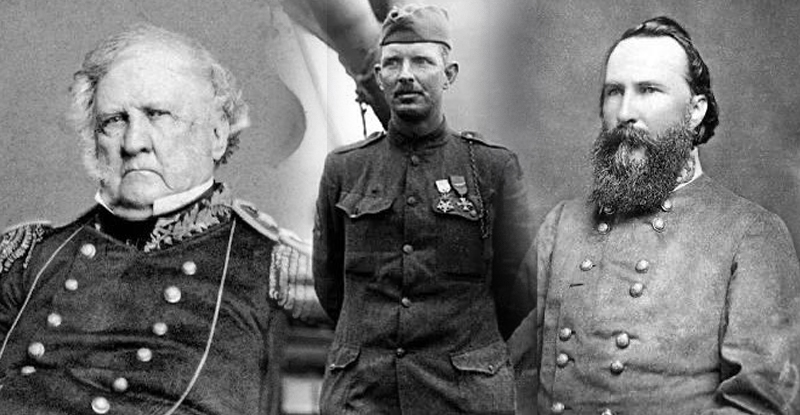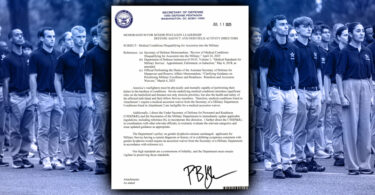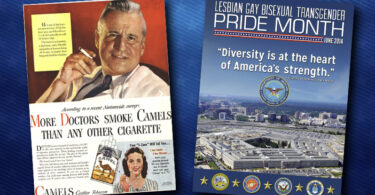By @InfantryDort on X, active duty Army Major
Tortured Warrior VII: Winfield Scott
The Torment
Scott was born in Virginia in 1786. His father died when he was a child, leaving him to struggle without wealth or protection in a harsh world. In his early career he was court-martialed for criticizing his commander, humiliated and suspended from the Army for a year. He carried the sting of disgrace, the shame of reckless words that nearly ended his life in uniform.
The Breaking Point
Though reinstated, Scott endured years of illness, injury, and ridicule. His strict discipline and eccentric manner earned him the nickname “Old Fuss and Feathers.” Many saw him as pompous and ridiculous. He suffered from gout and obesity, mocked even by his peers. More than once, it looked as if he would fade into irrelevance, remembered more for bluster than brilliance.
The Transcendence
Yet when war came, Scott rose. In 1812 he proved himself at Queenston Heights and Lundy’s Lane, wounded but unbroken. In Mexico he marched from Veracruz to Mexico City in one of the most brilliant campaigns in American history. Young officers like Lee, Grant, and Jackson studied under him, absorbing lessons that would shape the Civil War. For half a century he was the face of the Army, the man who carried it through peace and war.
The tortured warrior is not always loved. Sometimes he is mocked, ridiculed, or cast aside. But Winfield Scott showed that endurance through shame and scorn can still yield glory, and that scars of humiliation can harden into the armor of history.
—
Tortured Warrior VIII: Alvin C. York
The Torment
York was born into crushing poverty in the hills of Tennessee. He grew up rough, fighting and drinking hard. He was known as a brawler and a troublemaker, a man headed for ruin. Then came faith. He found religion and swore off his former ways, but it left him torn. His Bible told him not to kill. His country asked him to fight.
The Breaking Point
When drafted into World War I, York declared himself a conscientious objector. He was ridiculed as a coward, torn between conscience and duty. He spent nights in anguish, asking God to show him the path. In the crucible of indecision, he faced a torment deeper than any bullet — to fight meant to betray his soul, but to refuse meant to betray his brothers.
The Transcendence
York chose the battlefield. In the Argonne Forest he led a handful of men against a German machine-gun nest. Through fire and fear, he pressed forward. When the smoke cleared, he had taken 132 prisoners and silenced the guns that had slaughtered his comrades. For that he received the Medal of Honor.
He returned home still a simple man, still uneasy with the killing he had done. But his name stood as legend. The tortured warrior is not one who feels no doubt. It is the man who walks through doubt and emerges transformed.
—
Tortured Warrior IX: James Longstreet
The Torment
Longstreet carried sorrow from his earliest years. As a boy he survived yellow fever, but it took his siblings. Later, during the Civil War, his own three children died within a single week from scarlet fever. He was a soldier forged in grief, forced to bury those he loved even as he marched to war.
The Breaking Point
On the battlefield he endured the torment of command. At Gettysburg he begged Lee not to attack the Union position at Cemetery Ridge, convinced it would be suicide. Lee ordered it anyway. Longstreet carried out the assault with a heavy heart, watching thousands of his men slaughtered in Pickett’s Charge. The weight of obedience against his own judgment haunted him. After the war, he committed the unthinkable for a Confederate hero — he aligned with the Republicans and supported Reconstruction. For that, his former comrades branded him a traitor. The South he had bled for turned on him.
The Transcendence
But Longstreet did not break. He survived grief, disgrace, and ostracism. He built a new life as a diplomat, civil servant, and reformer. He lived to old age, one of the last great generals of the Confederacy, carrying his scars with dignity. History judged him harshly in his time, but modern eyes see his honesty, his realism, and his humanity.
The tortured warrior is often hated in life and vindicated in death. Longstreet bore the torment of burying children, the agony of seeing his counsel ignored, and the scorn of his peers. Yet he endured, proving that the warrior’s true strength lies not only in victory, but in survival.








Leave a Comment